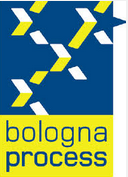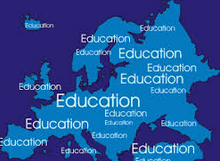카카오톡 상담 ID : Gcentre, Tel : 070 7010 3153, 이메일 : info@Gcentre.net

볼로냐 프로세스(영어: Bologna Process)는 영국, 프랑스, 독일, 이탈리아 등 4개 유럽연합 소속 국가들이 이탈리아 볼로냐에서 모여 2010년까지 단일한 고등교육제도를 설립, 유럽 대학들의 국제 경쟁력을 높이고자 1999년에 출범한 프로그램이다.(볼로냐 선언) 그 후 유럽연합에 속하지 않은 국가들도 참여해 회원수가 47개국으로 늘었다. 프로그램의 완성 목표 년도는 2010년이며, 현재 약 20여개국이 대학 개혁을 완성해 나가고 있다.
볼로냐 프로세스에 따르면 가맹국 내에서는 대학 졸업장 하나로 모든 나라를 넘나들 수 있게 된다. 다시 말해, 유럽 어느 대학을 나오든 유럽 국가에서는 어디서든지 취업을 할 수 있는 자격 요건을 갖추게 되었다는 의미이다. 교육도 경쟁이 된 현 시점에서 유럽 대학들이 제휴를 통해 경쟁력을 강화시키고 그로 인해 인재 확보를 꾀함을 엿볼 수 있다.

첫째. 국립대학들의 학위제를 통일시켰다. 이전까지 유럽 대학들은 학사와 석사 과정을 통합해 배우는 마스터 과정을 운영해왔다. 하지만 볼로냐 프로세스는 이를 미국식 학사, 석사, 박사 제도로 학제를 개편했다. 개편한 학제는 다음과 같다.
| 1년 2년 3년 | 4년 5년 | 6년 7년 8년 |
|---|---|---|
| Bachelor - 학사 | Master - 석사 | Doctor - 박사 |
위 표에서 보듯 3년의 고등교육을 받은 후에는 학사학위를 받아 직업 세계에 뛰어들 수 있도록 개편하였고, 학사 학위 취득 후 추가적인 연구는 석사와 박사 학위를 밟도록 하는 3-2-3 시스템을 유럽 공통 표준 모델로 하게 되었다.
둘째, 대학 교육 품질을 보증하기 위해 〈국가인증제도〉가 도입되었다. 대학 통합이 가능하려면 유럽의 모든 대학들이 일정 수준의 교육을 실시해야 한다. 그러자면 국가 차원에서 대학 교육의 질을 관리하여야 하며, 그로 인해 대학 교육의 질을 관리 할 수 있게 된다. 국가인증제도를 통해 교육의 질을 인정받은 나라의 대학들끼리는 졸업장이 어느나라에서든 사용하는 것이 가능하게 되었다.
결론적으로 볼로냐 프로세스는 유럽 공통의 교육 프로세스로서, 상호 경쟁이 치열한 여러 기업들이 합병, 제휴를 하는 것 처럼 유럽 교육계에서 대학들이 제휴와 합병을 통해 경쟁력을 강화시키려는 것으로 볼 수 있다.

The Bologna Process is a series of ministerial meetings and agreements between European countries designed to ensure comparability in the standards and quality of higher education qualifications. Through the Bologna Accords, the process has created the European Higher Education Area, in particular under the Lisbon Recognition Convention. It is named after the place it was proposed, the University of Bologna, with the signing of the Bologna declaration by Education Ministers from 29 European countries in 1999, forming a part of European integration.
It was opened up to other countries signatory to the European Cultural convention,[1] of the Council of Europe; further governmental meetings have been held in Prague (2001), Berlin (2003), Bergen (2005), London (2007), and Leuven (2009).
Prior to the signing of the Bologna declaration, the Magna Charta Universitatum had been issued at a meeting of university rectors celebrating the 900th anniversary of the University of Bologna – and thus of European universities – in 1988. One year before the Bologna declaration, education ministers Claude Allegre (France),Jürgen Rüttgers (Germany), Luigi Berlinguer (Italy) and Baroness Blackstone (UK) signed the Sorbonne declaration[2] in Paris 1998, committing themselves to "harmonising the architecture of the European Higher Education system".
The Bologna Process currently has 47 participating countries.[3] While the European Commission is an important contributor to the Bologna Process, the Lisbon Recognition Convention was prepared by the Council of Europe and members of the Europe Region of UNESCO.[4]
from Wikipedia